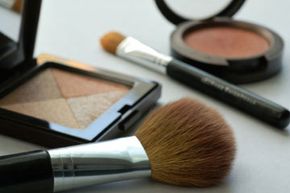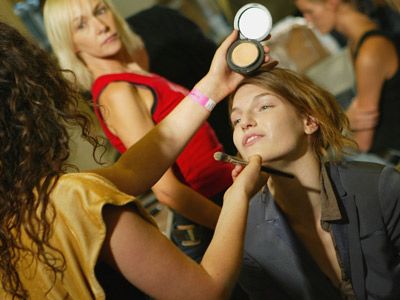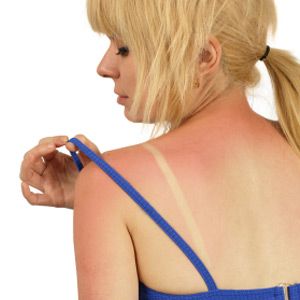You can share your secrets, your hopes and your dreams with your friends. However, dermatologists caution, you should never share your makeup.
Simply put -- swapping cosmetics can mean trading germs. Makeup brushes and applicators can easily carry bacteria from one person to another, and moist, dark containers allow such germs to thrive. You especially should never share lip and eye products, which come in frequent contact with more easily infected areas of the body. Think about it -- that's why you usually see disposable applicators on hand at most cosmetics counters. It's so the testers won't become contaminated.
Advertisement
Not disposing of makeup within a certain time limit, depending on the product, can also cause infections. Old cosmetics should be thrown out and replaced as needed. Recommended expiration dates vary between products, with liquid makeup getting older faster than powder. Mascara is especially important, as it comes in close contact with your eyes and can easily cause an infection. This may mean cleaning out your makeup collection on a regular basis, but the extra effort is well worth it to keep your skin and eyes healthy.
If you do share makeup or keep it for longer than recommended, you may develop a skin or eye infection. Other diseases associated with sharing makeup include the herpes virus, which causes cold sores, and dermatitis.
Keeping your makeup fresh and your skin clean can help you avoid illness. Keep reading for tips on makeup hygiene.
Advertisement


